Chef Merlin Labron-Johnson on the Golden Age of Travel
The award-winning chef tells The Week Portfolio about his star turn aboard the Belmond British Pullman
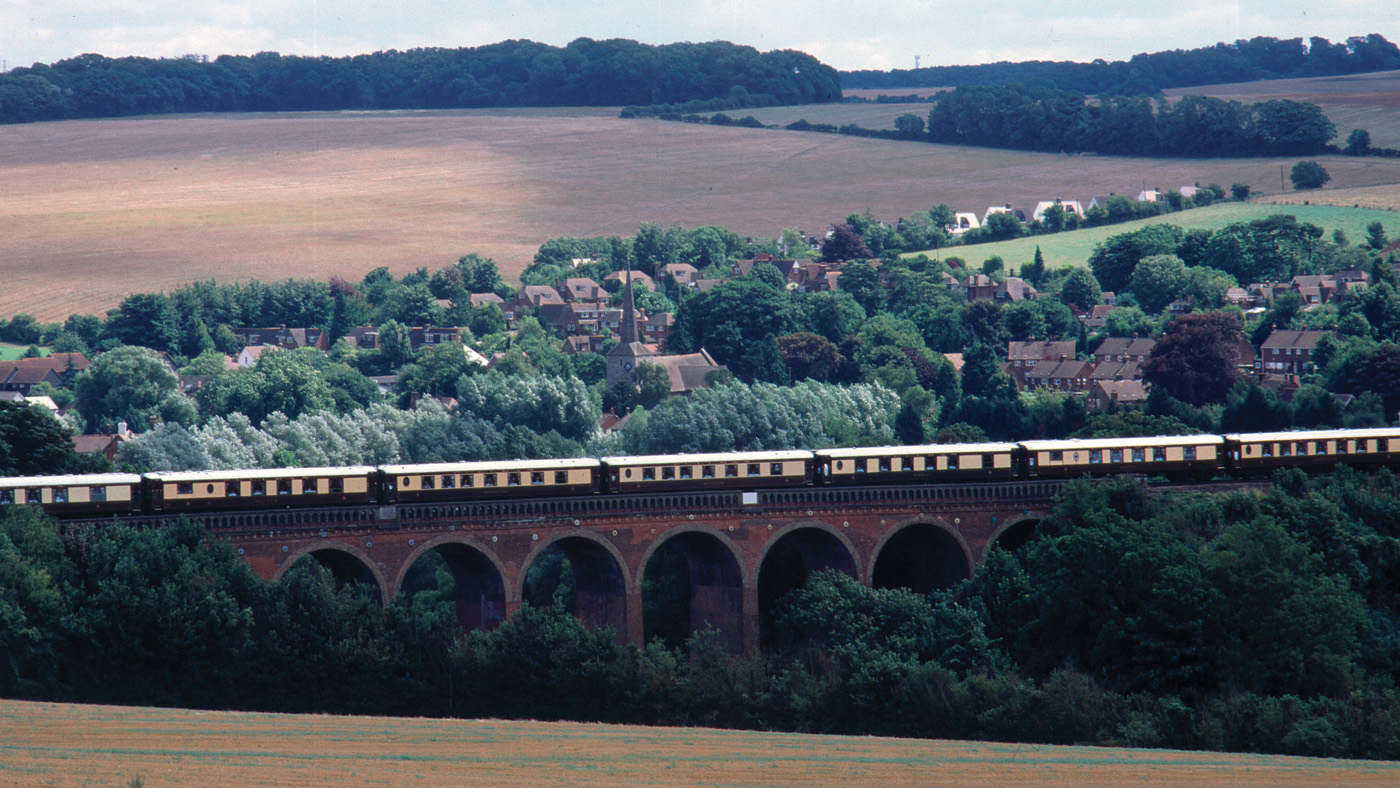
A free daily email with the biggest news stories of the day – and the best features from TheWeek.com
You are now subscribed
Your newsletter sign-up was successful
The food served on trains often tends to amount to little more than a few stale sandwiches and a selection of crisps. But there was a time, not so very long ago, when train travel was the very height of luxury, and on-board dining carriages the places to see and be seen.
Something of that bygone era has been brought back to life aboard the Belmond British Pullman, a glamorous vintage train on which you can relive the Golden Age of Travel.
The train is currently hosting a pop-up dinner series, which sees Michelin-starred chefs host intimate meals for just 140 guests at a time.
The Week
Escape your echo chamber. Get the facts behind the news, plus analysis from multiple perspectives.

Sign up for The Week's Free Newsletters
From our morning news briefing to a weekly Good News Newsletter, get the best of The Week delivered directly to your inbox.
From our morning news briefing to a weekly Good News Newsletter, get the best of The Week delivered directly to your inbox.
Ahead of his pop-up, The Week Portfolio caught up with chef Merlin Labron-Johnson, who gained a Michelin-star just nine months after opening his restaurant Portland at just 24 years of age, before joining private member’s club The Conduit as executive chef in October last year.
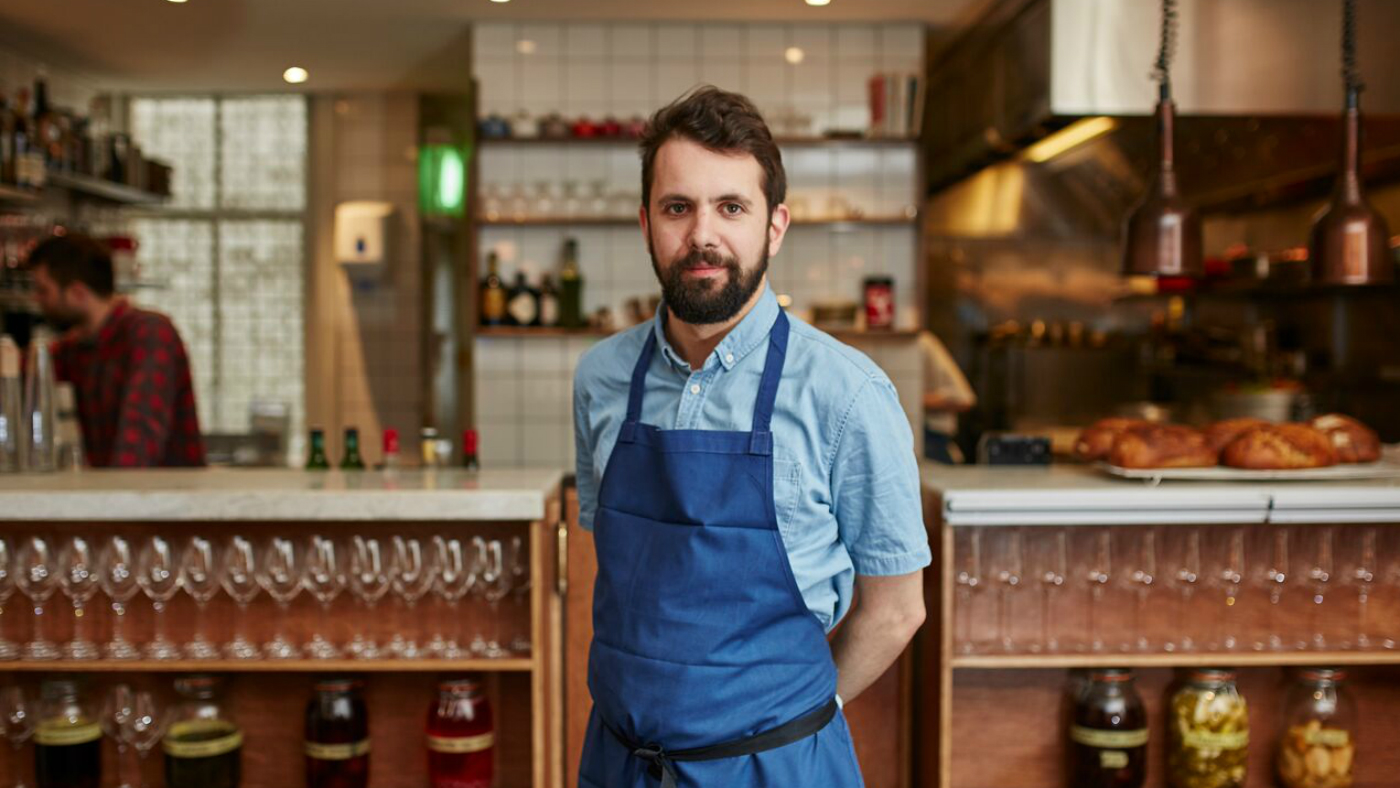
Your menu onboard the Belmond will focus on zero waste. How important is eliminating waste in the kitchen to you?
Eliminating waste is really important for a million different reasons. After much practice it's started to become second nature to create menus that don't produce 'waste' in the first place. It's all in the careful planning, the food shouldn't taste any different! We are extremely creative with surplus ingredients, careful with what we buy, where we buy it from and how we process our food. In many cases this makes for a more creative and innovative kitchen and hopefully one that will inspire others.
The Belmond harks back to a bygone era of luxury travel, with coaches dating from the 1920s to the 1950s. What can we learn from this era of British culinary tradition?
A free daily email with the biggest news stories of the day – and the best features from TheWeek.com
Well, I would imagine that between the 20s and 50s was a very difficult time for Britain, with rationing continuing until 1954. It was also the boom of processed and tinned food and post-war agriculture, where farming became very production orientated and farmers were encouraged to maximise their yields through the use of increased artificial input and animal and plant genetics. I'd hope that more value and respect was placed on food and food production back then and surely, it would've been more seasonal.
Without freezers and supermarkets importing food from all over the world we would've eaten food that was grown here, only when it was ready to eat. I've always taken an interest in what food was like in Britain before the wars and I have been relieved to learn that our culinary heritage is actually very rich, sharing much in common with our French neighbours. It is going to be an amazing feeling combining modern cooking with such fascinating heritage aboard the Belmond trains.
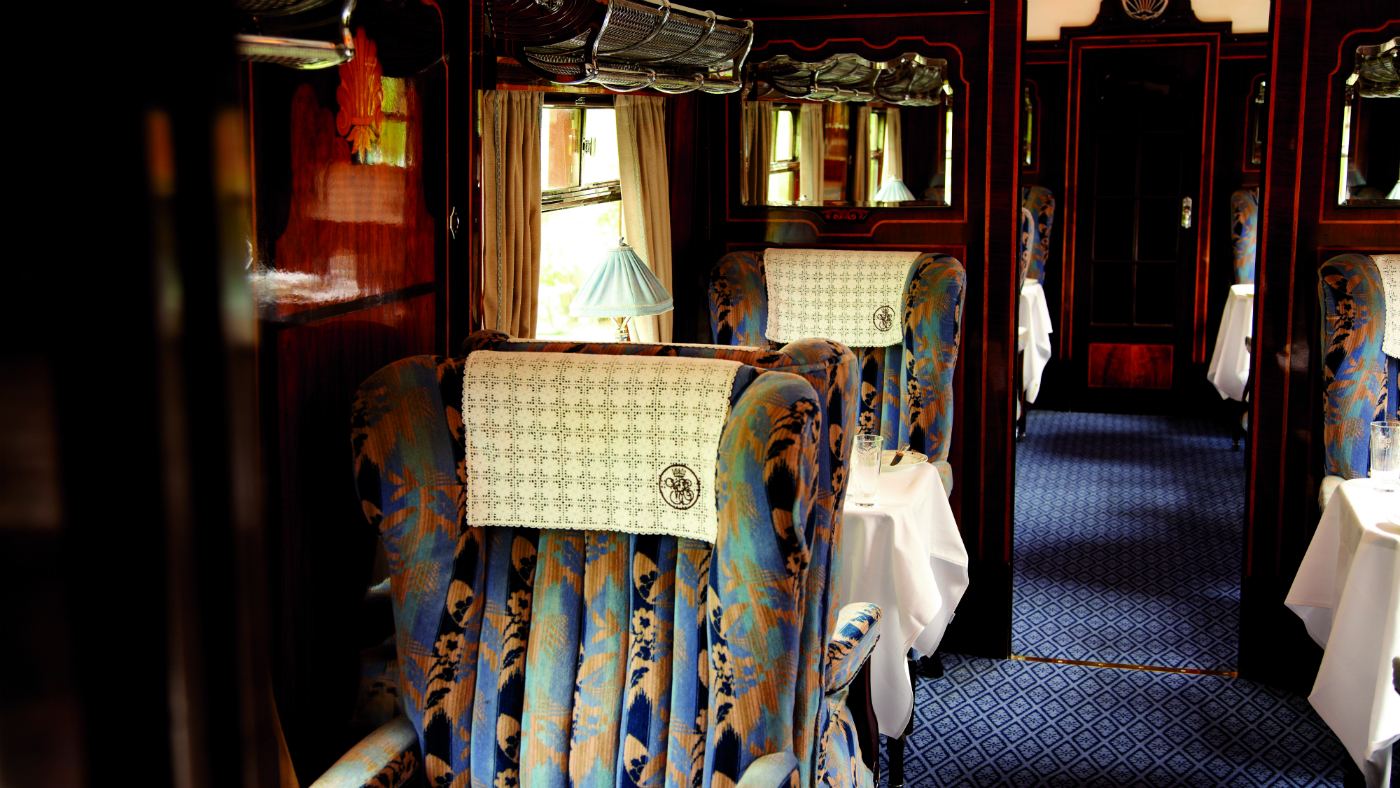
Part of the pleasure of being on the Belmond is the English countryside it passes through. To what extent is it possible to source ingredients from the area the train passes through? Is local sourcing an ambition of yours generally?
It's absolutely gorgeous, I've always loved trains and travelling through the British countryside. All my menus are very much focused around ingredients that are grown here and much of it is sourced directly from small farms in and around London. I have people growing for me in Walthamstow, Surrey, Hampshire, Cambridge and Sussex. The winter can be hard but summer and early autumn are always abundant with some of the most exciting produce I've seen anywhere.
You achieved your first Michelin star at the age of 24. Do stars drive you or are you interested in different accolades?
I was very lucky to achieve a star at the age of 24 and it's something I'm extremely proud of but I wouldn't say accolades are something that drives me. I'm very fortunate to have a job that I love and cooking food that makes me and other people happy is all I need!
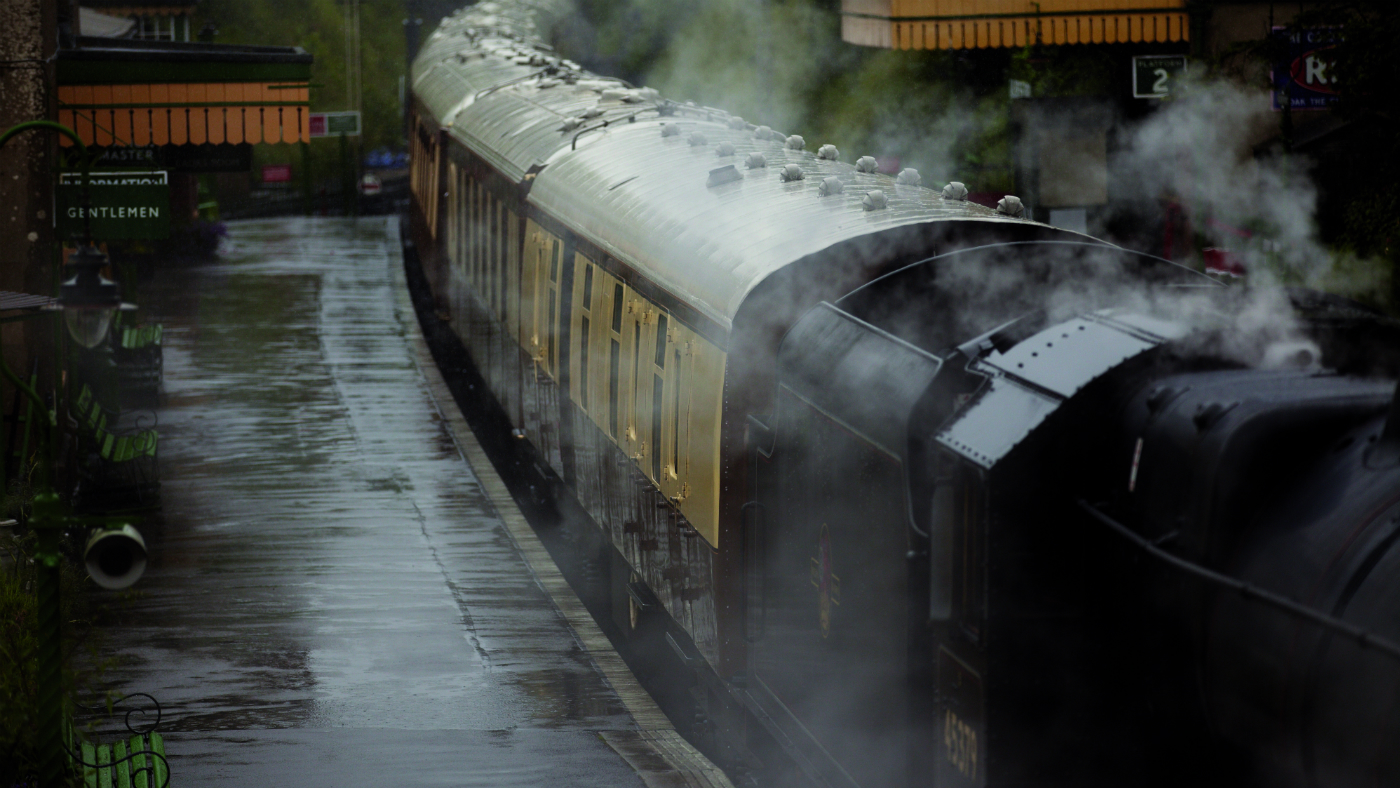
Is it possible to be a top level chef these days without also becoming a celebrity? Do the demands of TV appearances, books and promotion steal focus from the kitchen or can the two work hand in hand?
I think it's hard to combine the two but building a very strong and loyal team has to be the key to having success in all areas. Of course there are some chefs that prefer to be in the kitchen cooking and I think I might be one of those. We'll see!
What did you think of Kobe Desramaults' decision to close In De Wulf, the restaurant where you cut your teeth?
I understood the reasons behind him closing and while it was sad to say goodbye to such an iconic restaurant it was also wonderful to see him go on and do such new and exciting things.
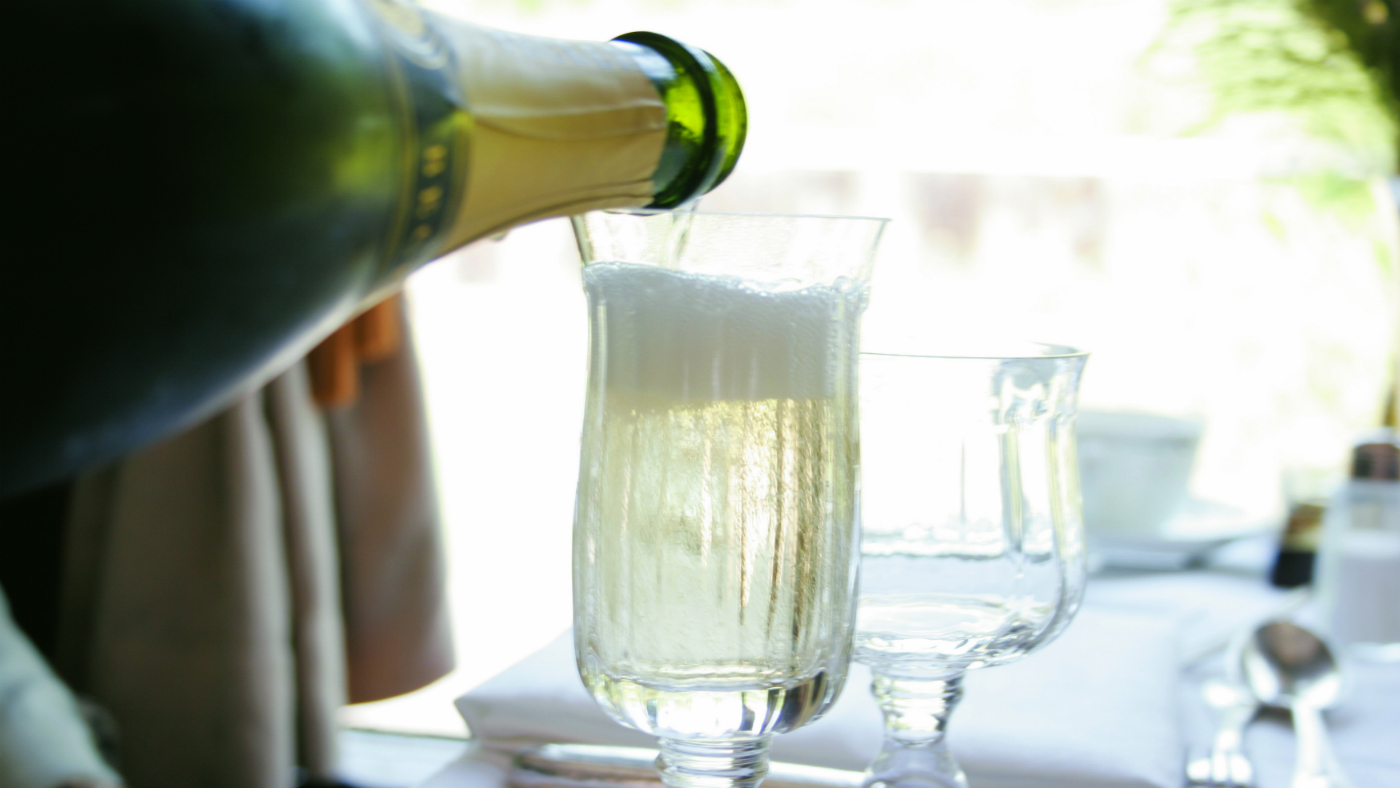
And what did you learn from your time cooking with him?
I learnt most of what I know and care about working with Kobe: how to look after your staff, how build a menu around a community of farmers, how to identify and cook wild foods and how to constantly think outside of the box. Living in such a remote place surrounded only by fields and agriculture meant that I was completely immersed in learning about the food, for 2 years, with no distractions. It was a wonderful time.
Where would you like to be professionally in 20 years time?
I would just like to be content and not constantly trying do more or do better. Satisfied I guess.
For more information and to book tickets visit belmond.com
-
 Crisis in Cuba: a ‘golden opportunity’ for Washington?
Crisis in Cuba: a ‘golden opportunity’ for Washington?Talking Point The Trump administration is applying the pressure, and with Latin America swinging to the right, Havana is becoming more ‘politically isolated’
-
 5 thoroughly redacted cartoons about Pam Bondi protecting predators
5 thoroughly redacted cartoons about Pam Bondi protecting predatorsCartoons Artists take on the real victim, types of protection, and more
-
 Palestine Action and the trouble with defining terrorism
Palestine Action and the trouble with defining terrorismIn the Spotlight The issues with proscribing the group ‘became apparent as soon as the police began putting it into practice’